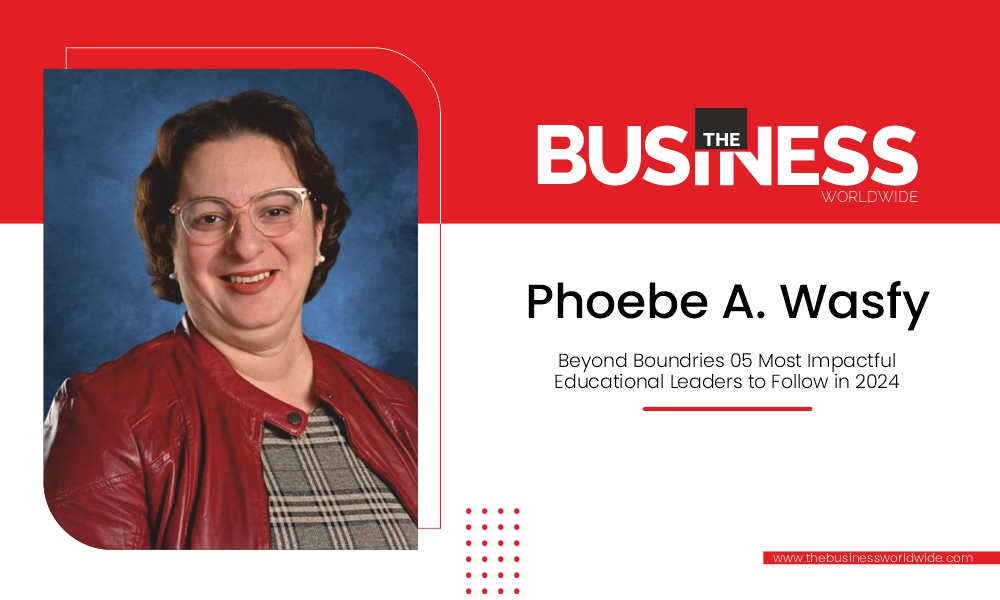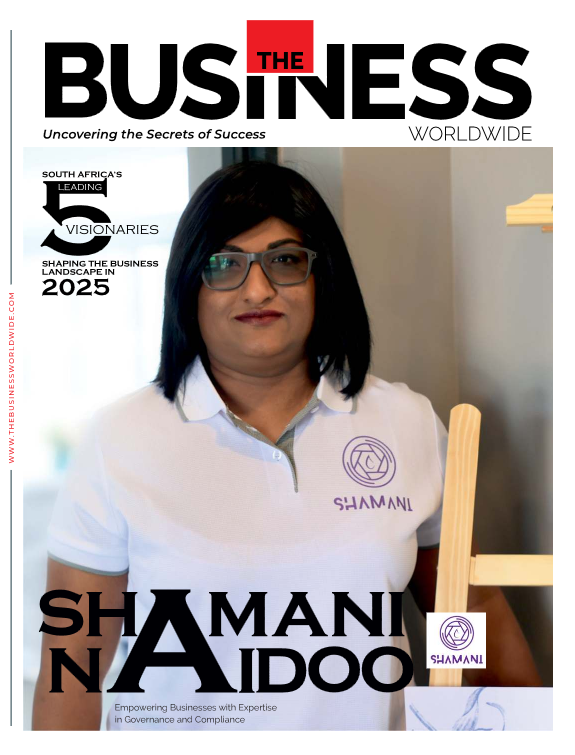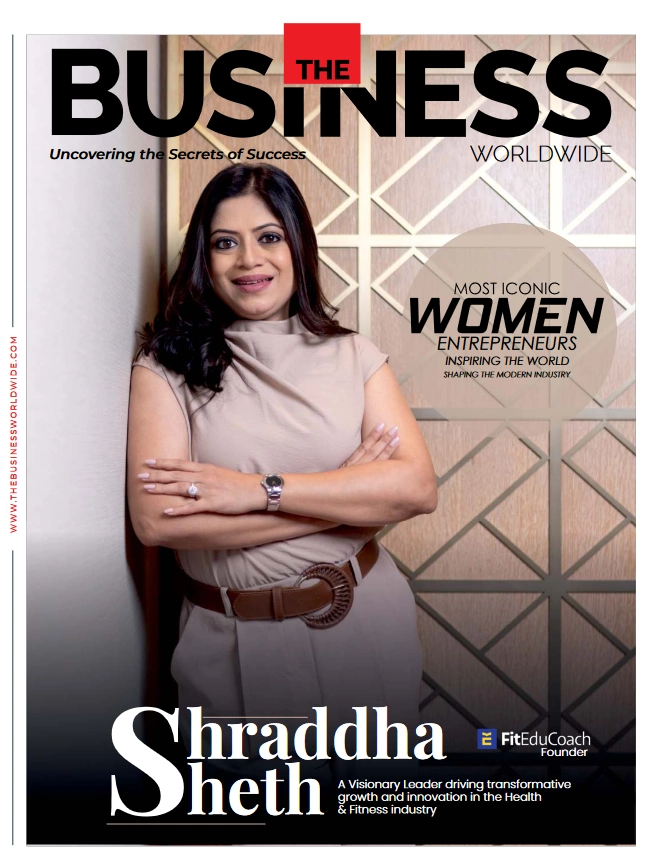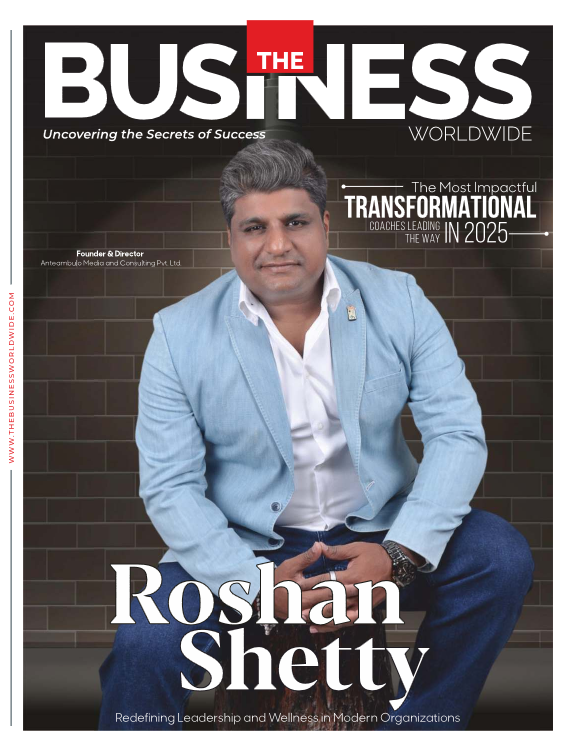Teachers or Educators are not just the backbone of any educational system, but also the makers of the basic fabric that makes the society – students or rather future generations. They don’t just impart lectures, grade their students, and make them ready for a vocation, but impart knowledge and skills and inspire curiosity, confidence, and self-worth. They are influential in shaping the future of society, as they prepare the next generation of leaders, innovators, and citizens.
As mentors and role models for students, the teachers support and motivate students to achieve their academic and personal goals while instilling values and ethics in them to develop positive attitudes and behaviors. These are also the precise reasons one should always remember when they choose to become a teacher.
Embarking on the journey of teaching is not merely stepping into a job; it’s embracing a vocation, a profound calling to shape minds, hearts, and futures. As one embarks on this noble path, there are a few timeless principles that serve as the guiding lights that illuminate the essence of this revered profession. Phoebe A. Wasfy, Principal of Philopateer Christian College and an educationist par excellence, shares those principles with us.
First and foremost, she reminds us that teaching is not just a job; it’s a sacred vocation. It’s a calling to make a tangible and lasting difference in the lives of your students. Each day when a teacher steps into the classroom, she/he has the power to ignite curiosity, inspire dreams, and instill values that will resonate throughout the students’ lives. “Embrace this responsibility with humility and reverence, for the impact you make reaches far beyond the confines of the classroom,” she says.
Respect the profession of teaching, for it is the cornerstone upon which all other professions are built. Teachers lay the foundation of knowledge, nurturing the intellect and character of future doctors, engineers, artists, and leaders. Without the dedication and passion of educators, the edifice of society would crumble. So, one should honor their role as a teacher, knowing that they are an architect of the future. “Never diminish the importance of your role by saying, “I’m just a teacher.” You are not just a teacher; you are a beacon of light in a world that often feels dark and uncertain. You are a mentor, a guide, and a source of inspiration for your students,” she says.
Phoebe emphasizes that one must embrace the challenges that come with teaching, for they are the crucibles in which a teacher’s character and resilience are forged. Every obstacle they encounter is an opportunity to grow, to learn, and to refine their craft. They must approach each day with a spirit of optimism and a willingness to adapt, knowing that the journey of teaching is as enriching and transformative for them as it is for their students.
“Above all, never lose sight of the profound impact you have on the lives of your students. Your words, your actions, and your example have the power to shape the course of their lives in ways both seen and unseen. Cherish the moments of connection, celebrate the triumphs, and persevere through the challenges, knowing that the seeds you sow today will blossom into a brighter tomorrow,” she says.
A Passionate Educator
Phoebe A. Wasfy’s professional journey is marked by her role as the Principal of Philopateer Christian College (PCC), a rapidly growing private school in Canada. PCC, a distinguished member of ACSI, has earned the title of “Best Private School” in Mississauga for five consecutive years. Established in 1999, PCC holds the distinction of being the first private school in North America founded by the Coptic Egyptian community, welcoming students from all backgrounds.
Phoebe’s journey began in Alexandria, Egypt, and she immigrated to North America at the age of nine. As an active member of the Ontario College of Teachers (OCT) and the Ontario Principals Council (OPC), she has been recognized for her contributions with nominations for the Order of Ontario in 2019 and 2020. Her commitment to community service has also been acknowledged through her induction into The Marquis Who’s Who in America and her receipt of the Vision Builder Women of Inspiration Award in 2021.
Educationally, Phoebe earned a Bachelor of Arts in History and Religious Studies from the University of Toronto in 2002, followed by the completion of her Professional Program in Education at D’Youville College, New York, USA in 2004. She continued her academic pursuits with additional qualifications in areas such as “Reading,” “History,” “Religious Studies,” and “Teaching Kindergarten-Grade 12.” In 2011, she completed her Principal Qualification Courses (PQC) and later obtained a Master of Education (MEd) from the University of Western, Ontario in 2014.
Phoebe’s dedication to learning is evident through her pursuit of a Higher Education Teaching Certificate from Harvard University in 2019 and the completion of the John Maxwell Leadership Certification in August 2023. Currently, she is engaged in a specialized leadership program through the Egyptian National Academy.
Phoebe’s involvement extends beyond PCC; she has served as a board member of ACSI-Eastern Canada since 2017 and is an adjunct faculty for the Youth Ministry Certification Program (YMCP) affiliated with YouthTrain, New Zealand. Her global impact is further highlighted by her participation in the World Youth Forum 2018 in Sharm ElSheikh, Egypt.
Passionate about fostering leadership and professional development, Phoebe heads numerous initiatives, including school youth humanitarian trips globally and fundraising efforts for initiatives like the Egyptian presidential program Decent Life. She also initiated Arabic-accredited courses in support of the Egyptian presidential initiative Etkalem 3araby.
Her dedication and impact in the field of education have been recognized globally, with features in multiple magazines and honors, including an honorarium presented to her by the Egyptian president His Excellency President Abdelfattah Al Sisi at the National Youth Forum in Alexandria, Egypt, and being selected as the top school principal, coach, and speaker of 2024 by the International Association of Top Professionals (IATOP).
A Collaborative Leader
Phoebe’s working style is fundamentally rooted in collaboration and active leadership participation. She firmly believes in the power of teamwork and the necessity of hands-on involvement from a leader to foster a thriving educational environment. For her, it’s not just about overseeing tasks from a distance but immersing herself in the day-to-day workings of the team and the learning experiences of each student.
A cornerstone of Phoebe’s approach is getting to know each student on a personal level. By understanding their unique strengths, challenges, and aspirations, she can tailor her support and guidance to meet their individual needs effectively. This personalized approach not only enhances their learning experiences but also establishes a deeper connection between herself and the students, fostering trust and rapport.
Furthermore, Phoebe emphasizes the importance of involving teachers in the decision-
making process. By including them in discussions, planning, and goal-setting, they can collectively work towards a common vision for the educational institution. This collaborative approach not only fosters a sense of ownership and investment among the teaching staff but also ensures that everyone is aligned and working towards shared goals.
Communicating Effectively
Communication, in Phoebe’s view, extends beyond mere verbal exchanges. While effective verbal communication is undoubtedly crucial, she also recognizes the power of leading by example and demonstrating her commitment to the shared objectives through action. Whether it’s rolling up her sleeves to assist with classroom activities, offering support where needed, or actively engaging in professional development initiatives, her actions speak volumes about her dedication to continuous improvement and student success.
Ultimately, Phoebe’s communication style is characterized by its authenticity, inclusivity, and emphasis on action. She strives to empower those on her team by providing them with the tools, resources, and support they need to make a meaningful impact on the lives of PCC’s students. Through collaborative effort and a shared sense of purpose, Phoebe and the rest teachers work together to create an educational environment where every student thrives and achieves their full potential.
The Institute
Philopateer Christian College (PCC) provides a comprehensive range of educational services catering to students from Pre-JK to Grade 12. One of its standout features is its bilingual program, offering full French and full English curricula from Kindergarten to Grade 8. This unique approach not only ensures linguistic proficiency but also fosters cultural understanding and appreciation from an early age.
Moreover, the Institute distinguishes itself by offering an Extended French program for students in Grades 9-12. This program enables students to deepen their French language skills and cultural immersion beyond the elementary level, preparing them for bilingual proficiency and potentially enhancing their academic and career opportunities.
In addition to its language-focused offerings, the Institute provides Pre-AP and AP (Advanced Placement) programs. These rigorous academic tracks are designed to challenge and prepare students for higher education by offering college-level coursework and the opportunity to earn college credit while still in high school.
The Institute further demonstrates its commitment to innovation and accessibility through its full online high school. This virtual learning platform allows students to access quality education remotely, providing flexibility and personalized learning experiences to meet diverse needs and circumstances.
Furthermore, the Institute’s international program within the school opens doors for students to engage with peers from different cultural backgrounds, fostering global citizenship and preparing them for an interconnected world.
Overall, the Institute’s blend of bilingual education, advanced academic programs, online learning opportunities, and international engagement sets it apart in the market, offering a holistic and forward-thinking approach to education that equips students with the skills and knowledge needed for success in the 21st century.
Driving Growth
As the principal of Philopateer Christian College (PCC), Phoebe’s role extends beyond mere administrative duties; it encompasses fostering innovation and driving the school’s growth in both local and global contexts. One of her primary objectives is to spearhead the introduction of fresh ideas that not only enhance the educational experience within the institution but also contribute to broader advancements in the field of education.
One such initiative Phoebe has championed is the integration of online learning on a global scale. Recognizing the transformative potential of digital platforms, she has worked to establish PCC as a leader in leveraging technology to expand educational reach beyond traditional boundaries. By tapping into the global stage of online learning, they’re able to offer enriching educational opportunities to students worldwide, transcending geographical limitations and fostering a more interconnected learning community.
Moreover, Phoebe has been instrumental in conceptualizing and strategizing the expansion of the institution through the establishment of multiple campuses in Ontario. This visionary approach not only caters to the growing demand for quality education in the local community but also reflects its commitment to providing accessible and innovative learning environments. By envisioning a network of campuses, they’re able to extend their impact and serve a broader spectrum of students, empowering them to thrive academically and personally. “By introducing initiatives such as global online learning and the expansion of multiple campuses, I aim to position our school as a trailblazer in educational excellence and pave the way for future success on a global scale,” says Phoebe.
Stumbling on Roadblocks
The biggest challenge Phoebe faced in her career occurred during the onset of the COVID-19 pandemic. While day-to-day challenges are commonplace in leading a private school, the pandemic presented an unprecedented obstacle that demanded innovative solutions and resilience.
When COVID-19 hit, it disrupted every aspect of the school’s operations. They had to navigate uncharted territory, ensuring the continuity of the learning process while prioritizing the safety and well-being of the students, faculty, and staff. Additionally, they needed to provide support to families facing the uncertainties brought on by the pandemic.
One of the primary challenges was transitioning to remote learning effectively. Phoebe and the administrative team had to rapidly adapt the curriculum and teaching methods to an online format, ensuring that students continued to receive quality education despite the physical closure of the school. This required significant coordination, communication, and technological infrastructure development.
Moreover, they faced the challenge of maintaining strong connections with parents during this period of remote learning. It was crucial to keep them informed, address their concerns, and provide support as they navigated this new educational landscape alongside the PCC management.
However, amidst these challenges, Phoebe saw an opportunity to innovate and expand the school’s reach. While many institutions were forced to contract or adapt minimally, PCC seized the chance to showcase its capabilities on a global stage through the online program. By embracing technology and creativity, they were able to offer their educational services to a broader audience, distinguishing themselves as leaders in the field.
To overcome these challenges, Phoebe and her team fostered a culture of adaptability, collaboration, and resilience within the school community. They encouraged open communication and feedback, allowing them to address issues promptly and effectively. They also invested in professional development to equip our faculty with the skills and resources needed for successful remote teaching.
“Ultimately, facing the challenges brought out our collective strength and determination. It reinforced the importance of flexibility, innovation, and community support in overcoming adversity. Through this experience, we learned valuable lessons about the power of perseverance and the growth potential even in the face of unprecedented challenges,” says Phoebe.
Preparing Students for the Future
Philopateer Christian College likely prepares its students to face the dynamic world often dubbed as VUCA (Volatile, Uncertain, Complex, and Ambiguous) through a variety of strategies and initiatives. Here are some common approaches that educational institutions may take:
The school emphasizes holistic education, prioritizing not just academic prowess but also fostering emotional intelligence, critical thinking, adaptability, and resilience among its students. Interdisciplinary learning is encouraged to help students understand the connections between various subjects and tackle complex issues. Hands-on experiential learning opportunities enable students to apply theoretical knowledge to real-world scenarios, honing their problem-solving abilities. Exposure to diverse cultures and global issues fosters empathy and cultural competence, essential for navigating today’s world. Embracing technology in education equips students with skills vital for the digital age. Leadership qualities and collaboration are promoted through group projects and extracurricular activities, preparing students for effective teamwork and leadership roles. Support systems and mentorship programs are in place to help students develop resilience and coping mechanisms. Additionally, a culture of continuous learning encourages students to adapt to change and continuously develop new skills throughout their lives.
By incorporating these strategies and initiatives into its educational approach, Philopateer Christian College can effectively prepare its students to thrive in a VUCA world.
The Evolving Role of Educators
Phoebe concurs that the role of educators and educational institutes has evolved significantly in the digital age. With freely available information on virtually every topic online, educators now face the challenge of not just imparting knowledge but also teaching critical thinking skills, digital literacy, and the ability to discern credible sources from misinformation or biased content.
In this context, the value of educators and educational institutes has arguably increased rather than diminished, she feels. While the information may be readily accessible, the role of educators in guiding students through this vast sea of information, helping them navigate it effectively, and fostering deeper understanding and analytical skills are more crucial than ever.
“Educators serve as mentors, facilitators, and guides in the learning process, providing context, insight, and personalized support that cannot be replicated by simply accessing information online. Moreover, educational institutes play a pivotal role in creating structured learning environments, fostering collaboration, and offering opportunities for hands-on experiences that complement online resources,” she says.
Keeping Up with the Times
Phoebe shares that staying current in the industry and fostering continuous growth involves several strategies:
- Continuous Learning: Actively seek out opportunities for professional development, whether it’s attending workshops, conferences, or enrolling in courses. Embrace lifelong learning as a mindset.
- Networking: Engage with other professionals in your field through conferences, seminars, and online communities. Exchange ideas, insights, and best practices to stay informed about industry trends and innovations.
- Research and Reading: Stay updated on the latest research, publications, and industry news. Subscribe to relevant journals, newsletters, and online publications to broaden your knowledge base.
- Mentorship and Collaboration: Seek guidance from experienced mentors and collaborate with peers on projects or initiatives. Learning from others’ experiences can provide valuable perspectives and insights.
- Experimentation and Innovation: Embrace a mind-set of experimentation and be open to trying new approaches or technologies. Encourage creativity and innovation within your practices and encourage others to do the same.
- Reflection and Evaluation: Regularly reflect on your experiences, successes, and challenges. Evaluate what worked well and what could be improved upon, then adjust your strategies accordingly.
- Adaptability and Flexibility: Remain adaptable and flexible in the face of change. Embrace new technologies, methodologies, and ways of thinking to stay relevant and competitive in your field.
“By consistently investing in your own growth and staying well-informed about industry developments, you can position yourself as a valuable contributor to both your own advancement and the growth of others within the educational community,” she says.
Understanding the Upcoming Trends
In the next five years, Phoebe observes that the following trends are likely to shape the education industry:
- Technology Integration:Continued integration of technology in education, including augmented reality, virtual reality, AI-based personalized learning, and adaptive learning platforms.
- Remote and Hybrid Learning: The pandemic accelerated the adoption of remote and hybrid learning models. These models are likely to continue evolving, offering flexible learning options to students.
- Focus on Soft Skills: There’s a growing recognition of the importance of soft skills such as critical thinking, communication, collaboration, and adaptability. Schools may emphasize these skills alongside traditional academic subjects.
- Personalized Learning: Tailoring education to individual student needs and preferences through data analytics, AI, and adaptive learning technologies will become more prevalent.
- Project-Based Learning: Project-based learning approaches, which promote hands-on, experiential learning, are gaining traction as they enhance student engagement and problem-solving abilities.
Phoebe also suggests that to prepare the school and students for these trends, several strategies can be adopted:
- Invest in Technology Infrastructure: Ensure the school has robust IT infrastructure to support technological integration in teaching and learning processes.
- Teacher Training: Provide professional development opportunities for teachers to enhance their digital literacy skills and familiarize them with emerging technologies and teaching methodologies.
- Curriculum Enhancement: Update the curriculum to incorporate elements of personalized learning, soft skills development, and project-based learning.
- Flexible Learning Spaces: Design learning environments that facilitate both traditional and technology-enhanced teaching methods, including spaces for collaboration, experimentation, and independent study.
- Partnerships and Collaboration: Forge partnerships with technology companies, educational institutions, and industry experts to stay updated on the latest trends and access resources for implementing innovative educational practices.
- Continuous Evaluation and Improvement: Regularly assess the effectiveness of implemented strategies and make adjustments based on feedback from students, teachers, and stakeholders.
“By proactively addressing these trends and preparing students accordingly, the school can ensure they are equipped with the skills and knowledge needed to thrive in an ever-evolving educational landscape,” says Phoebe.
Focus on the Future
As a team, for Phoebe and the teachers at Philopateer Christian College (PCC), the primary focus in the next few years will be to consistently and positively impact the lives of their students within their school. They are committed to providing high-quality education, fostering a supportive learning environment, and helping students develop the skills they need for success.
“While the digital revolution has democratized access to information, it has also highlighted the importance of skilled educators and robust educational institutions in preparing individuals for success in a rapidly changing world.“
Additionally, they aspire to expand their reach beyond the current school boundaries. Their goal is to take PCC’s educational model to other parts of the province, and possibly even on a global scale. By doing so, they aim to make a meaningful difference in the broader landscape of education. This expansion will allow them to share their successful practices, collaborate with diverse communities, and contribute to the enhancement of educational experiences on a larger scale.
Ultimately, their vision is to be catalysts for positive change in education, leaving a lasting impact on students’ lives and contributing to the broader advancement of educational standards locally, provincially, and potentially globally.
“Looking ahead, my aspirations extend beyond provincial borders as I envision Philopateer Christian College becoming a global success story in the realm of education. With a steadfast commitment to excellence and innovation, I am driven to explore opportunities for establishing offshore schools that carry forward our ethos of academic excellence and holistic development on an international scale. By leveraging the lessons learned from our local endeavors, we aspire to create a blueprint for success that transcends borders and inspires educational innovation worldwide,” concludes Phoebe.
“She is clothed with strength and dignity, and she laughs without fear of the future. – Proverbs 31:25”




